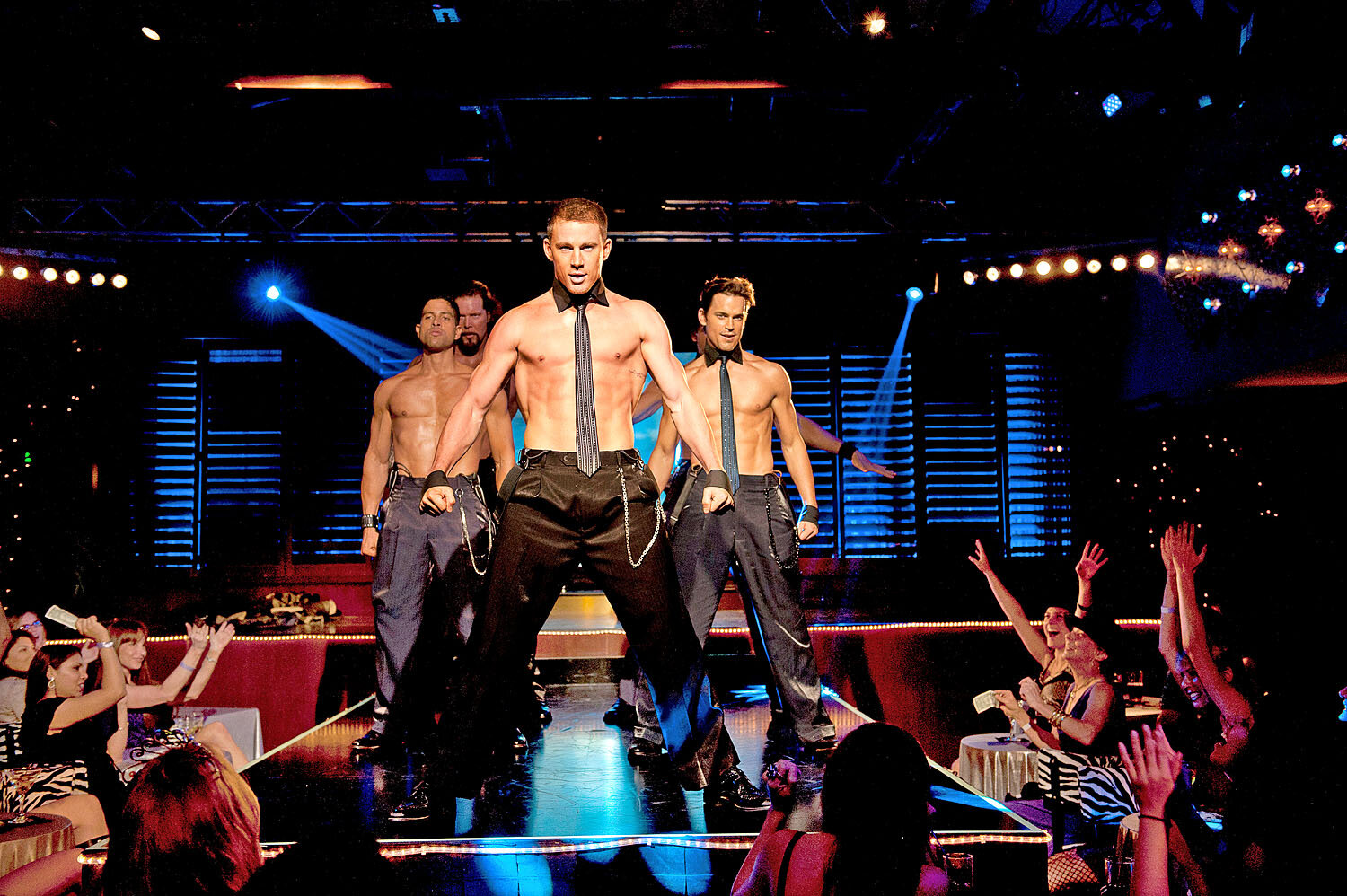
Magic Mike: The Appetizer
As some of you may know, the third film in the Magic Mike trilogy, Magic Mike’s Last Dance, is coming out next month on February 10th. This has prompted me to finally announce my love for this franchise, especially its second installment, Magic Mike XXL.
Now some of you may be asking, “is this a bit or do you genuinely love Magic Mike XXL?” The only correct answer for me is yes. I understand that it may be a bit absurd to put this much thought into a series about male entertainers but over the next few weeks I hope to convince you that besides being a solid and enjoyable set of films, the current Magic Mike canon is a guide map to help understand and heal the bro form of toxic masculinity.
Now, before we reach the heights of Magic Mike XXL, we must examine the first film in the series, the titular Magic Mike. For those who have not seen the first film, or perhaps only let it wash over as a conduit for the male nudity it has become synonymous for, here is a key summary. The titular Mike (Channing Tatum) is a man in his early thirties working a series of jobs trying to get enough money to start his own business in Tampa, Florida. After a construction gig he gives careless but handsome and affable Adam (Alex Pettyfer) a ride home. Mike sees a younger version of himself in Adam, and after a chance meeting on the streets of Tampa, decides to bring him into his real money maker, male exotic dancing. Bringing Adam in as “The Kid,” we are introduced to the Tampa exotic dancing night life. The booze, sex, and drugs enthrall The Kid, but Mike has seen it all already and begun to find it lacking. Between the toxic, domineering leadership of Dallas (an expert Matthew McConaughey) and Mike’s chemistry with the kids’ strait-laced sister Brooke (Cody Horn), Mike sees the cycle he is in and seeks a new path. Before I critique the film next week, I do want to highlight three parts that I initially enjoyed about the first film before my perspective was shifted by Magic Mike XXL.
1. Magic Mike is able to express emotion with its cinematography
I know this is the refuge of the film bro exasperatedly trying to defend an otherwise empty film, but Magic Mike’s quality shot choices demonstrate the care that Steven Soderbergh brings to the film. From the well framed dialogue scenes that let the actors do good work to the abstract shots which effectively depict the effects of party drugs, the use of the camera will be a key part of these films.
2. It’s a solid delve into an interesting subculture
The first film begins an interesting look into a subculture I have never experienced and likely never will: late-2000s Tampa’s nightlife from the perspective of a male entertainer. Though the film often takes quite a cynical view of this culture, you can feel the detail put into building a solid set of social dynamics around Mike. For example, the night after The Kid’s first show, Mike and Adam hook up with the girls from the club. Where a lesser film might just show them hooking up, Magic Mike expands show them talking on a drive through the city all watching the sunrise on a bridge before taking a cheeky dive into the bay a few feet below. What could have just been just a salacious side show becomes a lovely bonding moment for the boys in their budding friendship.
3. It cracks the surface of the bro
The most important thing that Magic Mike does, the thing the quality cinematography and community help to create, is to help us understand an under-examined group: the dude bro.
Now, there are plenty of films made for bros (300), including bros (Fast and the Furious), and even by bros (Transformers and all Michael Bay movies) but there are few films that truly examines the bro as whole. Magic Mike doesn’t show the dude bro as they want to be perceived, without flaws or weaknesses, just crushing life. Nor does it treat the dude bro merely a fragile mask that needs to be shattered to reveal a person of perfect communication that lies beneath, as a liberal zeitgeist seems to believe. It treats him as a rounded human being with complex emotions who expresses said emotions in bro mediums with bro limitations.
Mike is well calibrated to pick up women, both for work and pleasure. He has the pick-up game of a champion, comprising of a solid wit, good use of innuendo, and a lowkey delivery. Yet ask that same man to express his heartfelt emotions to his love and his easy banter eludes him. `When talking Adam, Mike can sling “rise and grind” business’ ideas with the best of them. But when he meets with a loan officer to try and get his small business off the ground, he snaps at her in frustration. His ego is unable to comprehend that his smooth-talking could not overcome his poor credit nor allow him to accept the poor credit relief program she offers. Yet it also makes you feel his passion. You can tell from how much effort he’s putting into the business that he has a care for the craft. More importantly, even when he is angry or bored, it gives you a sense of the spark of his passion and care for male entertainment. From his hip-hop moves in the “Pony” dance to his high wire acrobatics set, he can’t help but hone the craft he was built to express.
Magic Mike uses these elements to not just tell a simple story of a man finding his place in a world lacking and seeking change, but also creates a detailed portrayal of the growth and emotions of a male entertainer’s life in a specific time and place.